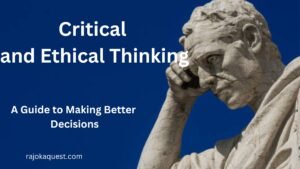Effective Communication Skills for Personal and Professional Growth

Correspondence is a part of daily existence, whether we impart it face to face or on the endless computerized stages. What amount of our correspondence contacts the target group or individual in a manner that we trust? Powerful correspondence expects us to be honest and complete in communication.
Being a viable communicator in our expert and individual lives includes acquiring the ability to trade data with clearness, compassion, and understanding. In this article, we’ll characterize what successful correspondence resembles, examine its advantages, and propose ways of further developing your relational abilities.
What is viable correspondence?
Successful correspondence is the most common way of trading thoughts, contemplations, conclusions, and information so that the message is received and perceived with clarity and reason. When we convey, both the shipper and beneficiary feel fulfilled.
Correspondence happens in many structures, including verbal and non-verbal, composed, visual, and tuning in. It can happen face to face, on the web (discussions, virtual entertainment, and sites), via telephone (through applications, calls, and video), or by mail.
For correspondence to be compelling, it should be clear, correct, complete, brief, and sympathetic. These are the 5 Cs of correspondence; however, they differ depending on who you’re inquiring about.
Advantages of compelling correspondence
The advantages of correspondence adequacy can be seen in the working environment, an instructive setting, and your life. Figuring out how to convey well can help in these areas.
In the working environment, viable correspondence can help you:
- Oversee representatives and assemble groups
- Develop your association all the more quickly and hold representatives
- Benefit from upgraded innovativeness and development
- Improve as a public speaker
- Construct solid connections and draw in additional open doors for you or your association.
Think about your crowd.
Who are you speaking with? Ensure you know about your crowd — those you expect to talk to may contrast from the people who accept your messages. Understanding your listeners’ perspectives can be critical to conveying the right messages. Their age, race, identity, orientation, marital status, pay, schooling level, subject information, and expert experience can all influence how they’ll accept your message.
Assuming that you’re publicizing a drive-through eatery, you should convey your message to a group that will likely be ravenous. This could be a bulletin on a bustling parkway that shows a monster cheeseburger and informs drivers that the nearest area is only two miles away.
Or, then again, assume you’re reporting your commitment to your loved ones. You could have a get-together a short time later to celebrate, send them photographs of the commitment to a gathering visit, shock them in discussion over supper, or label your relatives in your declaration via virtual entertainment. Your picked type of correspondence will rely upon your relational intricacies.
Practice undivided attention
Undivided attention is the act of really focusing on a correspondence trade. A strategy incorporates focusing on non-verbal communication, giving empowering verbal signals, getting clarification on pressing issues, and rehearsing non-judgment.
Before executing your correspondence, think about your crowd and practice undivided attention to get to the core of their requirements and wants. Along these lines, you can work on your correspondence as an instructor, social labourer, advertiser, teacher, partner, or companion.
3. Make your message as clear as could be expected
You might have something to impart when you have effectively recognized your crowd and paid attention to their expectations, needs, and wants. To do this really, go to the 5 Cs of correspondence to guarantee your message is:
- Clear
- Correct
- Complete
- Concise
- Compassionate
- Get ready to impart in a manner that accomplishes most of these qualities.
Utilize the suitable medium or stage.
You are utilizing a suitable medium or stage to convey matters. Successful correspondence expects you to consider whether you want to meet face to face or, on the other hand, assume Zoom would do the trick. Is your message sufficiently relaxed to utilize WhatsApp, or could a conventional email be more effective and exhaustive?
If you are looking for a companion, would both of you like to chat on the telephone or use dated letters? Anything you pick should be spontaneous and fitting for yourself and your circumstances.
You could survey the need level and the kind of correspondence required. In a promotional effort, is there a visual part on Instagram or a spoken digital broadcast promotion? Will the stage be a Facebook post, an item situation in a film, or a printed banner hung in bistros? For a college address, do understudies like to be on the web or meet face to face?
Confidence
In the working environment, individuals are bound to answer thoughts that are given certainty. There are numerous ways of seeing certain things, including visually connecting while tending to somebody, sitting up straight with your shoulders open and planning quite early. Hence, your considerations are clear, and you’re ready to respond to any inquiries.
Sure, correspondence is valuable at work and during the prospective employee meeting process. Furthermore, to show certainty, try not to add filler words.
Conclusion
Considering everything, the relationship between successful correspondence and expert development is specific. As the well-established aphorism goes, “It’s what you say, yet how you say it.” In the vast span of the expert domain, correspondence fills in as both the compass and the vessel, directing people towards potential open doors and development.
If you’re at the start of your vocation or even well into it, putting resources into refining your relational abilities could be one of the most effective choices for your expert direction. In a world overflowing with thoughts, those who can convey them most really stick out.






This blog was… how do I say it? Relevant!! Finaloly I have foynd something which helped me.
Appreciate it! https://Ukrain-Forum.BIZ.Ua/
This blo was… how do I say it? Relevant!!
Finally I have found something which helped me. Appreciate it! https://Ukrain-Forum.BIZ.Ua/
Thank you so much for your kind words